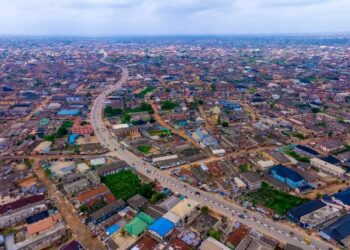The Presidency has dismissed recent comments by Dr. Akinwumi Adesina, President of the African Development Bank (AfDB), who claimed Nigerians are worse off today than they were in 1960.
The response came from Mr. Bayo Onanuga, Special Adviser to President Bola Tinubu on Information and Strategy, who described the claim as misleading and not grounded in factual data.
In a press statement issued Sunday, Onanuga challenged the figures cited by Dr. Adesina, particularly the claim that Nigeria’s GDP per capita was $1,847 in 1960 and has dropped to $824. He pointed out that official data from that period shows Nigeria’s GDP stood at $4.2 billion, with a population of 44.9 million—placing per capita income at only $93.
Onanuga noted that significant economic expansion began in the 1970s following the oil boom.
“Nigeria’s GDP rose to $12.55 billion in 1970, climbed to $27.7 billion in 1975, and peaked at $164 billion in 1981. During that time, per capita income also surged, hitting $2,187 in 1981 before experiencing a decline the following year” he stated.
Onanuga argued that GDP per capita alone is an insufficient yardstick for measuring quality of life, as it does not reflect income distribution, informal sector activity, or social development indicators. He emphasized that improvements in health care, education, transportation, and access to technology paint a more accurate picture of progress since independence.
“This premise alone suggests why Dr Adesina should not have arrived at his conclusion. Compared with 1960, Nigeria today has more primary, secondary, and tertiary schools. We have more road networks and more medical facilities, private and public. We have phenomenal access to telephones. At Independence, we had 18,724 operational phone lines for a population of about 45 million. Over 200 million Nigerians now enjoy near-universal access to mobile phones and digital services, indicating we are better off today than 65 years ago” the statement read.
He cited the growth in telecommunications as a key example—contrasting the fewer than 20,000 landlines available in 1960 with the current widespread use of mobile phones by over 200 million Nigerians. This, he said, demonstrates greater connectivity and access to services that were unimaginable decades ago.
Onanuga recalled that when telecom companies assessed Nigeria’s market potential in the late 1990s, GDP figures suggested low viability. Yet, companies like MTN that entered the market thrived, with the firm now reporting tens of millions of active users and revenues in the trillions of naira—highlighting the limitations of GDP as a sole measure of development.
He added “No objective observer can claim that Nigeria has not made progress since 1960. Today, as we await the NBS’s recalibration of our GDP, we can comfortably say without contradiction that it is at least 50 times, if not 100 times, more than it was at Independence.”
The Presidency concluded by stating that Dr. Adesina’s comparison lacked depth and leaned more toward political commentary than economic analysis. According to him, Nigeria’s economic story cannot be reduced to a single metric without considering broader structural and social realities.




